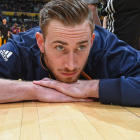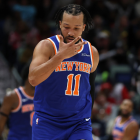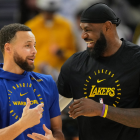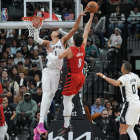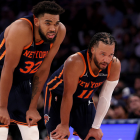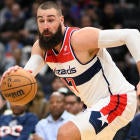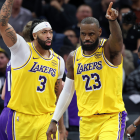After a Fourth of July full of confusion, Gordon Hayward announced that he will sign with the Boston Celtics in an essay on The Players' Tribune on Tuesday night:
This was a life-changing decision for me and my family, and something we took really seriously. And from the very start of this process, one thing stood out as important: I knew that I wanted the fans and the organizations to hear my decision directly from me.
After seven years in Utah, I have decided to join the Boston Celtics.
I know that will be tough to hear for Jazz fans — and I really want you all to know that you mean the world to me and my family. Over the past few days, I've been genuinely torn. And I know that this process isn't easy on the fans, either. So I just want to be as straight-up as possible about why I'm coming to Boston.
It was reported earlier Tuesday that Hayward had picked Boston, but those reports were later disputed by ones saying that Hayward was still undecided.
ESPN's Bobby Marks reports that Hayward and the Celtics have agreed to a 4-year, $127 million max contract, and that Boston will have to move around some pieces to make it all work:
With Gordon Hayward now agreeing to a four-year $127M max contract, Celtics management now has a series of transactions to do in order to create cap space. The Celtics would have to pull the qualifying offer on Kelly Olynyk, renounce free agents Jonas Jerebko, James Young, Gerald Green and waive the contracts of Jordan Mickey and Demetrius Jackson (or trade). The Celtics would be left with $27.6M in room and likely need to move the contract of Jae Crowder, Terry Rozier or Marcus Smart. Trading Rozier would have the Celtics short $1M of a max salary slot.
Hayward will be reunited with Celtics head coach Brad Stevens, who coached him in college at Butler.
Hayward has produced steadily in his first seven NBA seasons, all with the Jazz, but had a breakout season in 2016-17. He was named to his first All-Star team, and finished with averages of 21.9 points, 5.4 rebounds and 3.5 assists while shooting 40 percent on 3-pointers.









